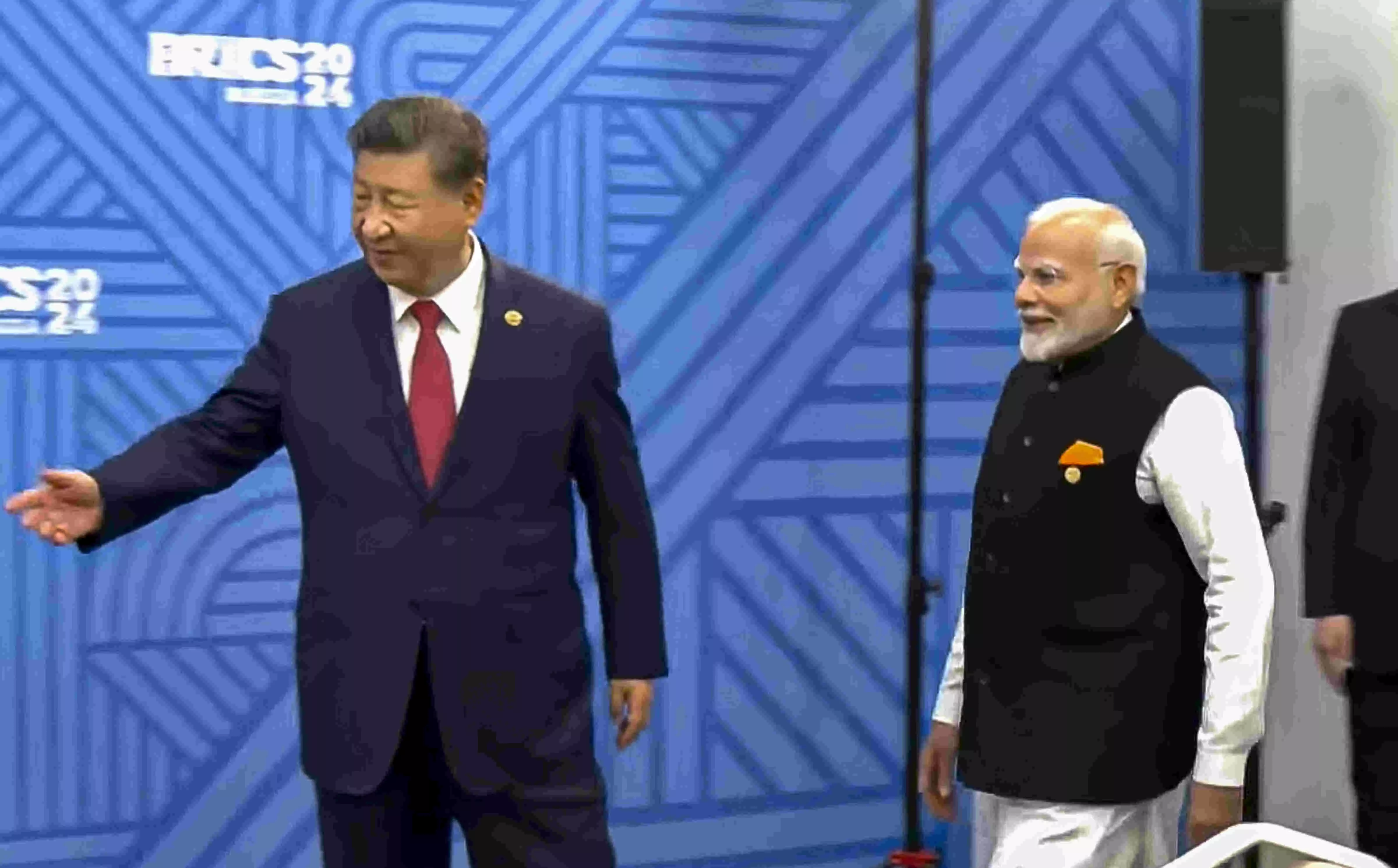India navigated geopolitical challenges with steely resolve

New Delhi: In a year marked by geopolitical tensions and turbulence, India and China ended an over four-and-a-half-year border standoff and announced steps to reduce mistrust even as New Delhi faced fresh challenges after deposed Bangladesh prime minister Sheikh Hasina fled the country in the face of a mass movement against her rule.
The year 2024 saw India shifting gears in expanding its strategic heft in the neighbourhood and beyond with a steely resolve while navigating the two most consequential crises -- the war in Ukraine and the Israel-Hamas conflict.
At the fag end of the year, New Delhi was readying its approach in dealing with US President-elect Donald Trump’s second term amid fears that his policy approach relating to trade and tariff may have profound implications for international trade.
Though the overall India-US relations broadly continued to blossom, especially in the domains of defence, critical technologies and clean energy, the ties came under some strain over the so-called “murder for hire” case.
Washington has been pressing India to take action against Indians allegedly involved in a foiled plot to assassinate pro-Khalistan separatist Gurpatwant Singh Pannun in New York last year.
In November last year, US federal prosecutors charged Indian national Nikhil Gupta of working with an Indian government employee in the plot.
The relations between India and Canada sharply nosedived in the second half of the year after Ottawa linked several Indian diplomats including High Commissioner Sanjay Verma to the murder of Khalistani separatist Hardeep Singh Nijjar.
India strongly rejected the charges and recalled Verma even as the Canadian government said Indian diplomats were expelled. India expelled acting Canadian High Commissioner Stewart Wheeler and five other diplomats following Canada’s allegations.
However, the end of the military faceoff between India and China along the Line of Actual Control in eastern Ladakh was the high point in the foreign policy domain.
Following an understanding reached on October 21, the two sides completed the disengagement of troops at the two remaining friction points of Demchok and Depsang.
Prime Minister Narendra Modi and Chinese President Xi Jinping held talks on the margins of the BRICS Summit in Russia on October 23 and agreed to revive various bilateral dialogue mechanisms, signalling an intention to normalise the relations.
External Affairs Minister S Jaishankar travelled to Islamabad in October to attend a summit of the Shanghai Cooperation Organisation (SCO). It was the first such visit from India to Pakistan in nearly a decade that came amid frosty ties between the two neighbours.
India’s relations with Bangladesh also came under severe strain after deposed Prime Minister Hasina fled the country in the face of a massive anti-government protest that ended her nearly 16-year rule.
The relations nosedived dramatically after the interim government headed by Muhammad Yunus failed to contain attacks on minorities, especially Hindus, in that country. The year also saw India forced to focus more on the neighbourhood with pro-China leaders helming governments in the Maldives and Nepal. Following insistence of Maldivian President Mohamed Muizzu, India withdrew all its military personnel from the Maldives, a key island nation for New Delhi in the Indian Ocean.
In his first foreign trip after becoming the Prime Minister for a third straight term, Modi travelled to Moscow in July.
In his meeting with President Vladimir Putin, Modi told him that a solution to the Ukraine conflict is not possible on the battlefield and peace efforts do not succeed in the midst of bombs and bullets.
In August, Modi travelled to Ukranian capital city of Kyiv and conveyed to President Volodymyr Zelenskyy that both Ukraine and Russia should sit together without wasting time to end the ongoing war and that India was ready to play an “active role” to restore peace in the region.



